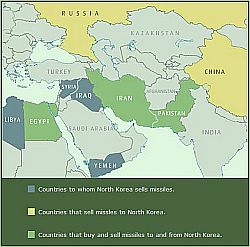Military Keynsianism, American Exceptionalism, and Trump
This Chas Freeman piece, The End of the American Empire, has gotten a lot of attention since it got posted yesterday. He talks about several key issues, starting with how counterproductive our “sphere of influence” Empire, which brings an expectation we can dictate the rules for all other countries (save China and Russia, and — I’d add — until recent successes in undermining Bolivarism, parts of South America) around the world.
The notion of a sphere of influence that is global except for a few no-go zones in Russia and China is now so deeply ingrained in the American psyche that our politicians think it entirely natural to make a number of far-reaching assertions, like these:
(1) The world is desperate for Americans to lead it by making the rules, regulating global public goods, policing the global commons, and doing in “bad guys” everywhere by whatever means our president considers most expedient.
(2) America is losing influence by not putting more boots on the ground in more places.
(3) The United States is the indispensable arbiter of what the world’s international financial institutions should do and how they should do it.
(4) Even if they change, American values always represent universal norms, from which other cultures deviate at their peril. Thus, profanity, sacrilege, and blasphemy — all of which were not so long ago anathema to Americans — are now basic human rights to be insisted upon internationally. So are homosexuality, climate change denial, the sale of genetically modified foodstuffs, and the consumption of alcohol.
These American conceits are, of course, delusional. They are all the more unpersuasive to foreigners because everyone can see that America is now in a schizophrenic muddle — able to open fire at perceived enemies, but delusional, distracted, and internally divided to the point of political paralysis.
This sphere of influence Empire, on top of being horrible for the rest of the world, is also sucking the US dry internally.
Diplomacy-free foreign policy blows up enough things to liven up the TV news, but it generates terrorist blowback and it is expensive. There is a direct line of causation between European and American interventions in the Middle East and the bombings in Boston, Paris, and Brussels as well as the flood of refugees now inundating Europe. And so far this century, we’ve racked up over $6 trillion in outlays and future financial obligations in wars that fail to achieve much, if anything, other than breeding anti-American terrorists with global reach.
We borrowed the money to conduct these military activities abroad at the expense of investing in our homeland. What we have to show for staggering additions to our national debt is falling living standards for all but the “one percent,” a shrinking middle class, a rising fear of terrorism, rotting infrastructure, unattended forest fires, and eroding civil liberties. Yet, with the notable exception of Bernie Sanders, every major party candidate for president promises not just to continue — but to double down on — the policies that produced this mess.
[snip]
Whatever the cure for our foul mood and foreigners’ doubts about us may be, it is not spending more money on our armed forces, piling up more debt with military Keynesianism, or pretending that the world yearns for us to make all its decisions for it or to be its policeman.
As it happens, I’m also reading Greg Grandin’s biography (I think the better description is “intellectual history”) of Henry Kissinger, which I also recommend. Grandin portrays Kissinger (a New Left figure with an old right morality or lack thereof, Grandin suggests) as the cornerstone for this process, down to what Freeman points to as one key problem with our Empire, that it gets run out of the National Security Council. I’m just part way in, but Grandin describes how Kissinger, partly in a bid to remain in Nixon’s good graces, packaged a bunch of foreign intervention (and because it’s Kissinger, outright genocide) for domestic consumption. We extended the Vietnam War to Cambodia and Laos not for strategic reasons but for domestic political consumption, dead protestors notwithstanding.
Both pieces resonate with something I’ve increasingly been thinking: that what gets called American Exceptionalism — which is really the sphere of influence Freeman describes packaged up under an always dubious and increasingly tarnished moral claim to authority — significantly served a domestic purpose (though it also served to accrue power for America’s elites, including its big corporations): to make Americans content with their lives, even if we never got the kind of social welfare that Europe instituted after World War II.
Europe got universal healthcare. We got the right to claim ourselves morally superior to the rest of the world, even if we paid more for crappy health insurance.
I’d add something neither man focuses on: American exceptionalism always has a domestic component, which largely involves white people (especially men) lording over people of color.
I raise all this because it’s something I’ve been thinking about increasingly this election year, to explain Trump especially, but also the counter-establishment mood generally. I think the electorate really consists of three blocks: Trump voters who want to reclaim the privileges of American exceptionalism for their own benefit (which is why his supporters so often express their outrage in terms of race, because exceptionalism involves the domination of both the rest of the world and of people of color domestically). Then there are the Hillary and mainstream GOP voters, who are trying to squeeze some benefit out of what Freeman rightly calls military Keynesianism (though I’d argue neoliberalism is about corporate welfare Keynesianism more generally). And then lefties — many but not all of whom support Sanders — who question both the corporate Keynesianism and, especially, the sphere of influence empire.
My real point, however, is that the Trump effect is secondary. It is absolutely true that American workers and middle class, generally, have been losing ground. And it absolutely true that whites may perceive themselves to be losing more ground as people of color equalize outcomes, however little that is really going on. It is, further, absolutely true that large swaths of flyover country whites are killing themselves, often through addiction, at increasing rates, which seems to reflect a deep malaise.
But I also think the effect of the Trump side of the equation — the thing that’s driving rabid adherence to an orange boob promising a big wall and domestic investment as well as promising to treat other countries with utter disdain — is secondary malaise, the loss of the self-belief that America actually is exceptional.
(White) America needs to stop believing its superior stems from the ability to lord over much of the rest of the world and start investing in actually living with the rest of the world.

![[image: Leo Reynolds via Flickr]](https://www.emptywheel.net/wp-content/uploads/2016/02/LettersTh_LeoReynolds-Flickr.jpg)
![[original graphic: outsidethebeltway.com]](https://www.emptywheel.net/wp-content/uploads/2016/01/UkraineGasTransmission_outsidethebeltway.jpg)
![[image by Images Money via Flickr]](https://www.emptywheel.net/wp-content/uploads/2016/01/ChineseFortuneCookie_ImagesMoney-Flickr.jpg)

